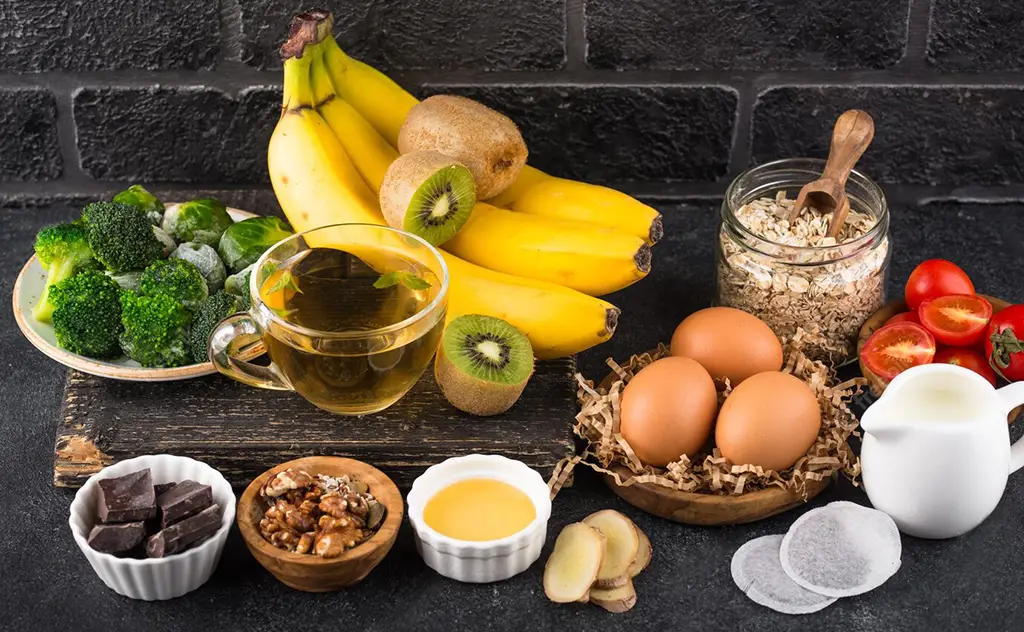Have you ever heard that you are what you eat?
Your body is a home, the home of your mind and soul. Like any house you have to take care of it so that you, inside it, can feel comfortable. To take care of your body you have to make it listen to certain music, nourish it with certain readings and keep it alive with foods that ensure its wellbeing.
If you want to ensure that you are always in a good mood, you must incorporate tryptophan-rich foods into your diet.
Tryptophan is an essential amino acid that plays a key role in the body.
But although it is present in many foods, not all are equal when it comes to the quantity and quality of tryptophan. Those that are richer in it can help improve your mood and sleep.
It is therefore important to know how best to integrate them into one’s daily diet in order to derive maximum benefit.
Whether you are an athlete looking to improve performance, a professional looking to reduce stress or simply a person looking to improve your wellbeing, we will provide you with all the information you need to choose the right foods to improve your health and wellbeing.
We will find out together which foods are rich in tryptophan and which other natural compounds can help you achieve the same goal.
On what can a good mood depend?
There are many reasons why we feel in a good mood. It could be because we are spending the day in the company of a loved one, because we are doing an activity that brings us joy, and there are even days when we get up and feel incredibly peaceful for no apparent reason.
Good mood can therefore depend on many different factors including:
- Internal factors: these include hormones and neurotransmitters produced by the body that regulate our emotions such as serotonin, dopamine, noradrenaline and melatonin;
- Physical activity: exercise can release endorphins, chemicals in the brain that help reduce stress and improve mood;
- Nutrition: a healthy, balanced diet can have a positive impact on mental well-being and good mood;
- Sleep: getting enough sleep and quality sleep can help reduce irritability and improve mood;
- Interpersonal relationships: having positive and meaningful social relationships can be beneficial for good mood;
- Pleasurable activities: engaging in activities that we enjoy and that give us satisfaction can increase our good mood;
- Positive thinking: adopting a positive and optimistic outlook on life in general can improve mood and reduce stress;
- Stress level: reducing stress definitely has a positive impact on the mind and body;
- Mental health: dealing with any mental health problems can help improve mood.
Why do we talk about it? Knowing the possible sources of your well-being helps you make it last and awaken it when you feel a little down.
How tryptophan comes into play
We have already spoken many times about tryptophan and the importance of incorporating it into one’s eating habits to stay healthy. However, repeating it never hurts because we all, in the end, try in whatever way we can to stay healthy.
Tryptophan is an essential amino acid. This means that it is not produced by the body directly but is found in many foods such as meat, fish, eggs, milk, nuts and seeds. It is so important because it is a precursor of serotonin, a neurotransmitter that plays a key role in mood regulation.
When consuming food containing tryptophan, the body uses it to synthesise serotonin. Serotonin is known to have a positive effect on mood and, therefore, intake of the amino acid through the diet can help improve mood.
The benefits of tryptophan therefore manifest themselves in the regulation of sleep, appetite and cognitive functions, including memory and attention. Its intake through the diet can therefore have a positive impact on these aspects of mental health and general well-being.
Of course, it is important to know that tryptophan alone cannot significantly improve mood or mental health. Its intake must be considered as part of an integrated approach to mental health that includes a balanced diet, regular exercise, sufficient sleep and social and psychological support if necessary.
Which foods have the most tryptophan
Where is tryptophan found? If you do not follow a specific diet, there are plenty of foods you can range from to take this important amino acid.
Some tryptophan-rich foods are:
- Meat: chicken, turkey, beef, pork;
- Fish: salmon, tuna, mackerel;
- Eggs;
- Legumes: chickpeas, beans, lentils;
- Whole grains: spelt, oats and wheat;
- Nuts and seeds: almonds, Brazil nuts, pumpkin seeds, sunflower seeds;
- Fruit: fruit with the most tryptophan include bananas, pineapple, plums, avocados, dried fruit is also good;
- Vegetables: spinach, cabbage, asparagus, pumpkin;
- Dark chocolate.
If you follow a vegetarian diet, legumes and nuts are an excellent source of tryptophan, while the vegetable richest in tryptophan is green leafy vegetables. All these foods can help improve the availability of tryptophan in the body.
If you prefer to avoid animal products, you can opt for plant-based tryptophan supplements, which are a good option for increasing your amino acid intake. Alternatively, we will also shortly look at the variant of CBD supplements, also perfect for those on a vegan diet, which allow you to achieve a very similar result.
How to integrate tryptophan into your diet? Doing it through the foods we have just listed is no problem, just introduce them gradually into your diet. With regard to supplements, however, it is always best to seek the advice of a specialist or your doctor.
How to keep tryptophan levels high
To recap, tryptophan and serotonin, the feel-good hormone, are closely related. If you want to maintain high levels of tryptophan in your body, you can consider taking specific foods or supplements.
Alternatives to tryptophan are CBD products, an active ingredient derived from hemp that has been shown to have a positive effect on physical and mental well-being. There are different types of CBD products including CBD oil, topical products such as creams and ointments, and those for oral consumption such as capsules.
Scientific research has shown that CBD has anxiolytic and antipsychotic properties that may help alleviate symptoms of anxiety, depression and other mood disorders. Some research suggests that CBD also has a positive effect on sleep quality, which of course affects quality of life.
Always remember to pay attention to the quality of the CBD products you choose, as not all are the same.
In Maria CBD Oil’s shop you can find 100% natural and safe products designed to help you find well-being in everyday life. Our team of experts can help you choose the most suitable product for your specific needs. Otherwise, we recommend you take a peek inside the blog to find all the answers you need about the types of products, their benefits and the correct method of use.
Visit our store now and find the right product for you.
 Contact us
Contact us 






